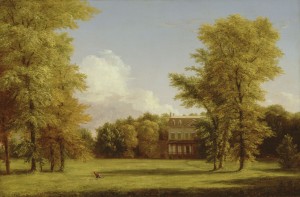 Though the Dalai Lama has yet to use a computer, the 1990s “Think Different” ad is a reminder that he was a mascot of globalization in its early phase, between the fall of the Berlin Wall in 1989 and the terrorist attacks of 9/11. In that innocent era, the universal triumph of liberal capitalism and democracy seemed assured, as new nation-states appeared across Europe and Asia, the European Union came into being, apartheid in South Africa ended, and peace was declared in Northern Ireland. It could only be a matter of time before Tibet, too, was free.— “The Last Dalai Lama,” New York Times, 12/6/15
Though the Dalai Lama has yet to use a computer, the 1990s “Think Different” ad is a reminder that he was a mascot of globalization in its early phase, between the fall of the Berlin Wall in 1989 and the terrorist attacks of 9/11. In that innocent era, the universal triumph of liberal capitalism and democracy seemed assured, as new nation-states appeared across Europe and Asia, the European Union came into being, apartheid in South Africa ended, and peace was declared in Northern Ireland. It could only be a matter of time before Tibet, too, was free.— “The Last Dalai Lama,” New York Times, 12/6/15
Sunday morning. I have the luxury of yoga pants and t-shirt and black tea and the Sunday Times. There’s only one route from my house on a hill to the supermarket, but I never need to think about being ambushed while on a quick bread, milk, and chocolate run.
A winter night, the trees bare and the cold air carries heavy sounds from tracks a few miles south of here to my bedroom window cracked open. I have the luxury of listening. I do not need to steal an hour of sleep while my abuser, my tormentor, is passed out in another room. I have the luxury of listening to the nineteenth century: romance transporting its cargo.
In high school, I didn’t ask for a hall pass. I didn’t need to. I was president.
Driving any American road with a speed gun aimed at me, I don’t neutralize my countenance. I don’t need to look innocent, but I am and I do.
I didn’t need to have the talk with my son before he went downtown on his own for the first time to shop for vinyl records, skinny jeans.
On skinny Avon beach (North Carolina’s Outer Banks), my luxury’s the sea all the way to the curved horizon. My luxury’s the annual ritual Atlantic immersion. I face in each of the four cardinal directions, and, four times, I let the ocean break over me. Suspended in fetal position underwater, I welcome the cold purification of body, heart, mind, and soul for as long as breath can hold.
On Sukkot, season of flimsy abundance in permeable booths, my luxury extends to the ripe moon, rich with light.
My luxury in February: Chilean grapes.
I don’t need to remember to adjust, in the restroom mirror, my whiteness—turn it up or down—before I return, hands clean, to the office party.
My luxury in four postures: lying down, rising up, standing still, and walking without fear by the way.
My luxury: the sun I own. I invite you to enjoy it, but remember the one to whom it belongs.
My luxury: I’m free. Is that because the judge is mine? Just like the teacher was mine? Even before the first quiz, she knew the best grade in class belonged to me.
I love my mortgage enough to take out a second one. What shall it be? Build up or out? A fitness room? A spa? My luxury is a room for each of my moods. The comforts of home.
Remember that innocent era between the fall of the Berlin Wall in 1989 and 9/11? I remember: my luxury.
Your savior isn’t mine, your holiday isn’t mine, your hymnal isn’t mine. What luxury, what a privilege to set myself apart from the holly wreaths, holiday attire, assumptions and indulgences of neighbors on either side, across the street, and down the road all the way and all around me in the places where I work, shop, and play.
The luxury of mother’s love: shirt fresh from the dryer.
The campus police: I don’t know their names or the way they move around campus. I barely notice them at all: my luxury.
I can afford hours.
I can afford the luxury of poetry: a darkened room where mother, father, and child wait while, in their front yard, a few white men gather, a cross burns. “Incident,” Natasha Trethewey.
I imagine God. I imagine no god. My luxury: I create, I delete. What difference does it make to God? My luxury: I don’t need to make a difference.
It’s only a matter of time. Time is white. My time—growing up as an American middle-class 1950s and 60s assimilated Jew—is also sechel, what Jews got and goyim ain’t got. Brains, smarts, cleverness, common sense. That’s what I was told. Lucky me. Why question it? My luxury.
Richard Chess is the author of three books of poetry, Tekiah, Chair in the Desert, and Third Temple. Poems of his have appeared in Telling and Remembering: A Century of American Jewish Poetry, Bearing the Mystery: Twenty Years of IMAGE, and Best Spiritual Writing 2005. He is the Roy Carroll Professor of Honors Arts and Sciences at the University of North Carolina at Asheville. He is also the director of UNC Asheville’s Center for Jewish Studies.













